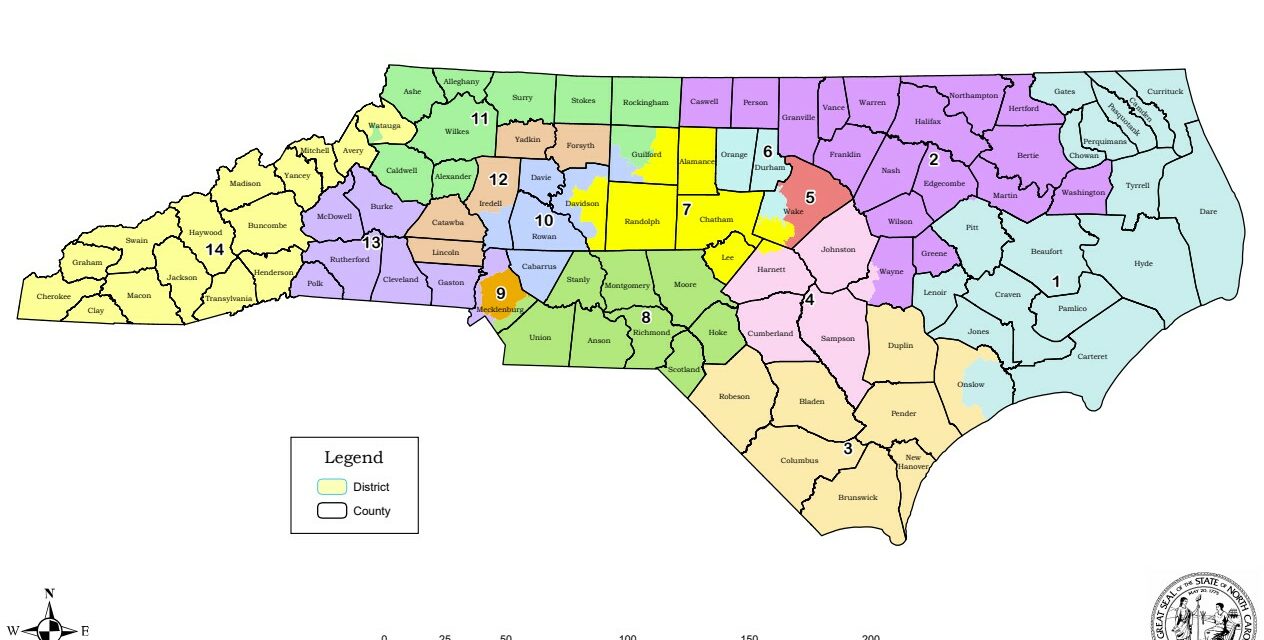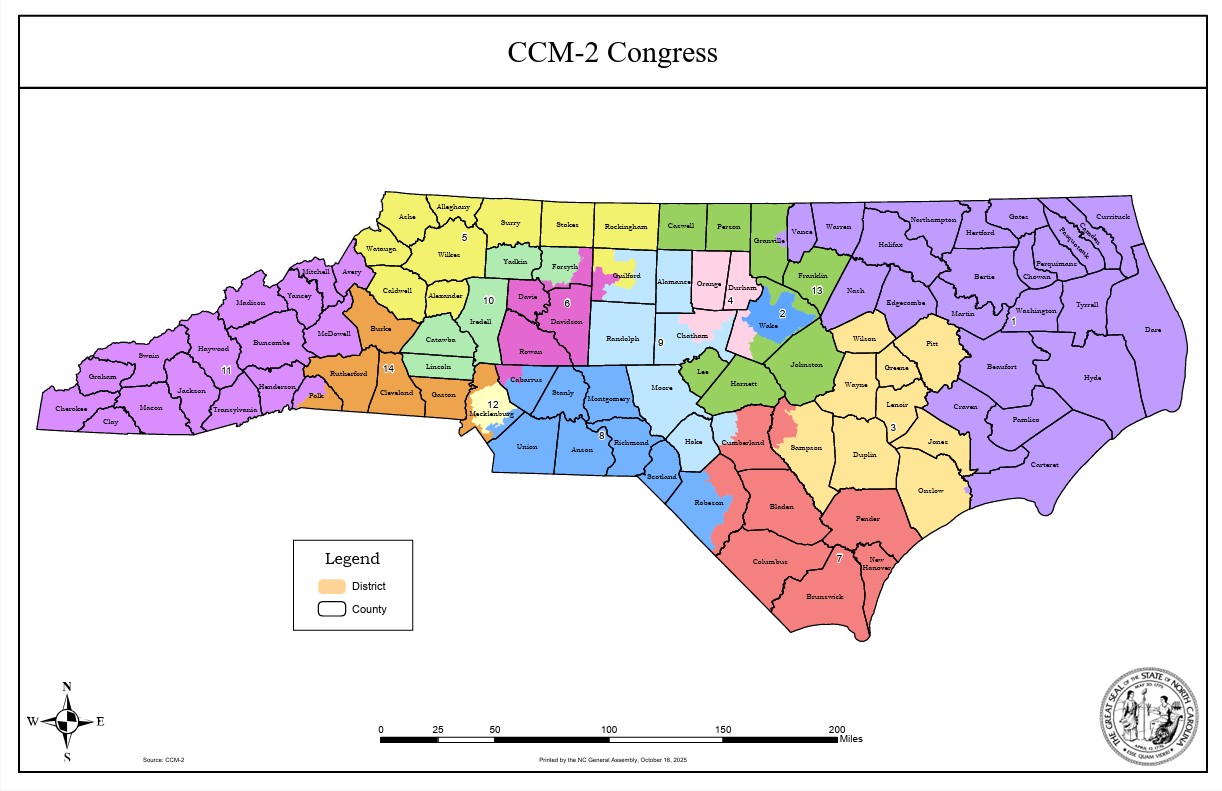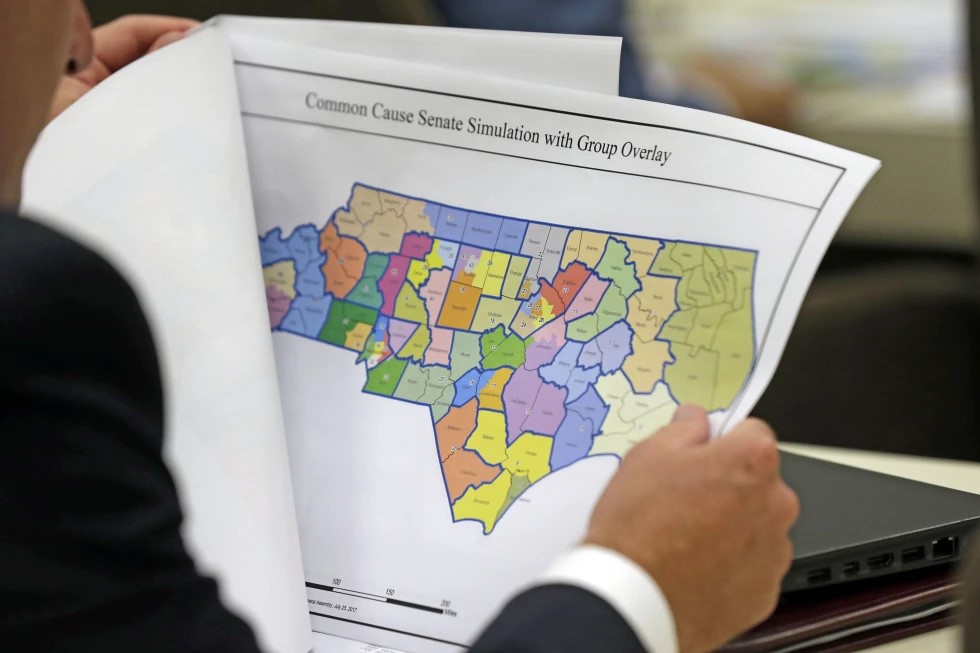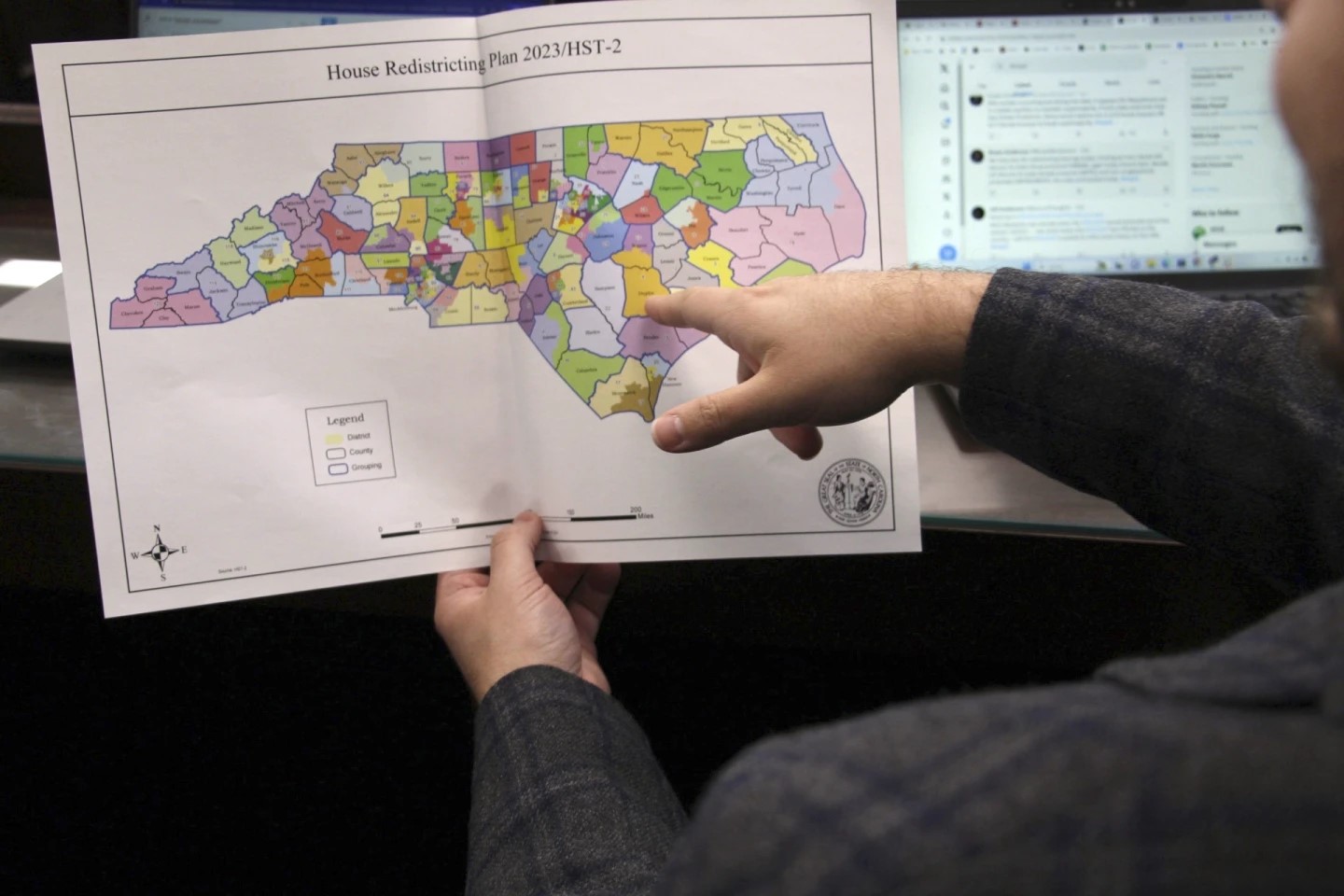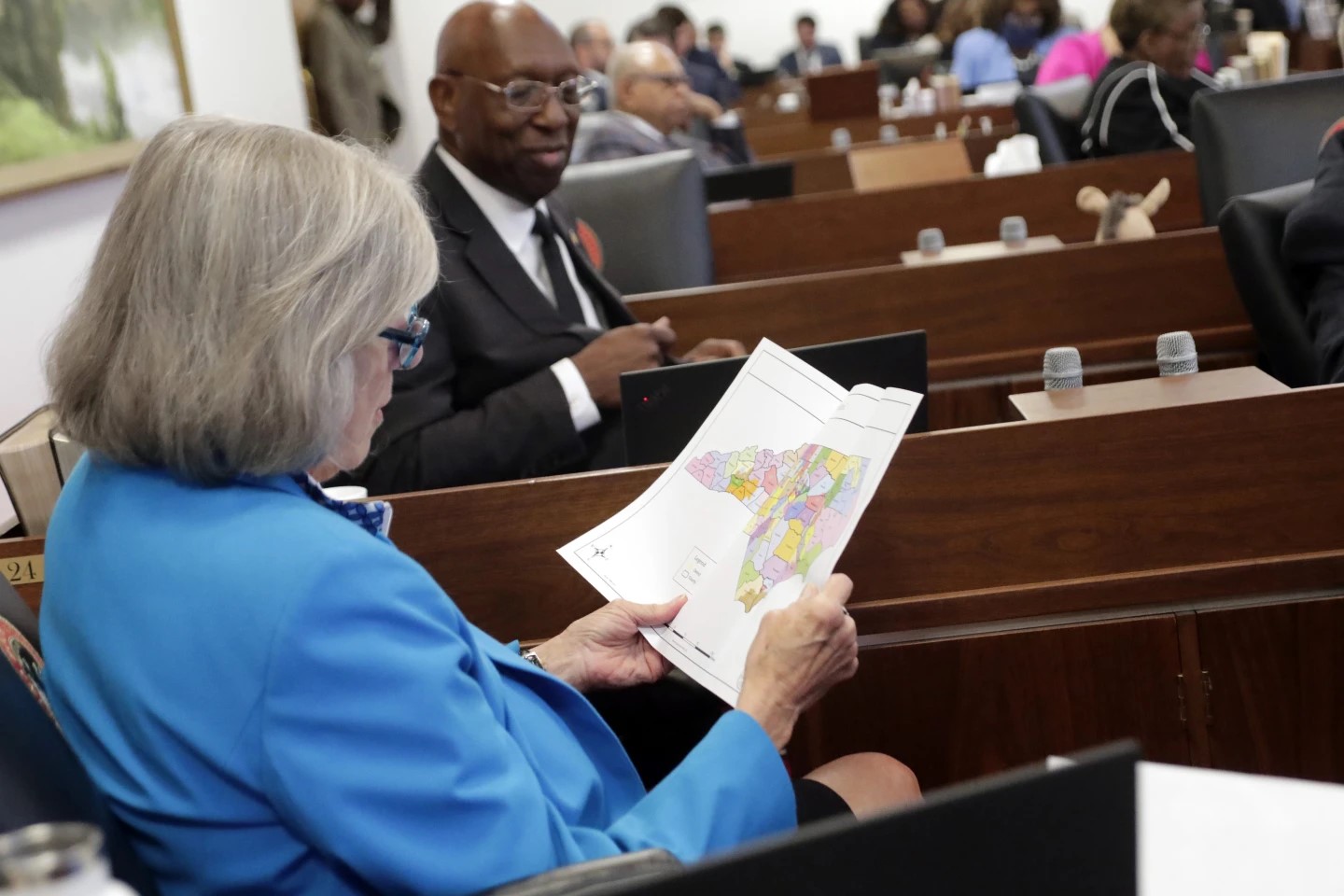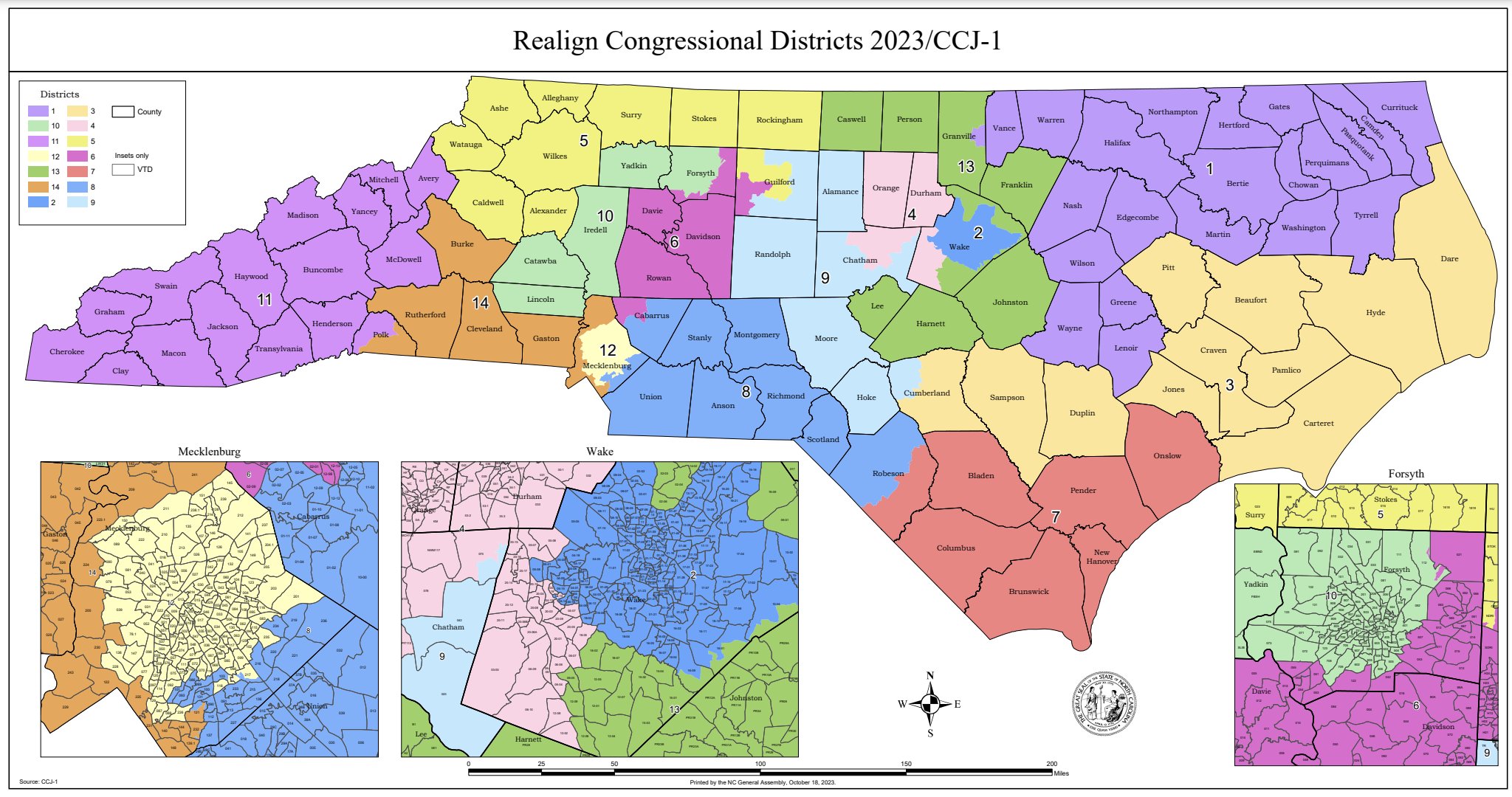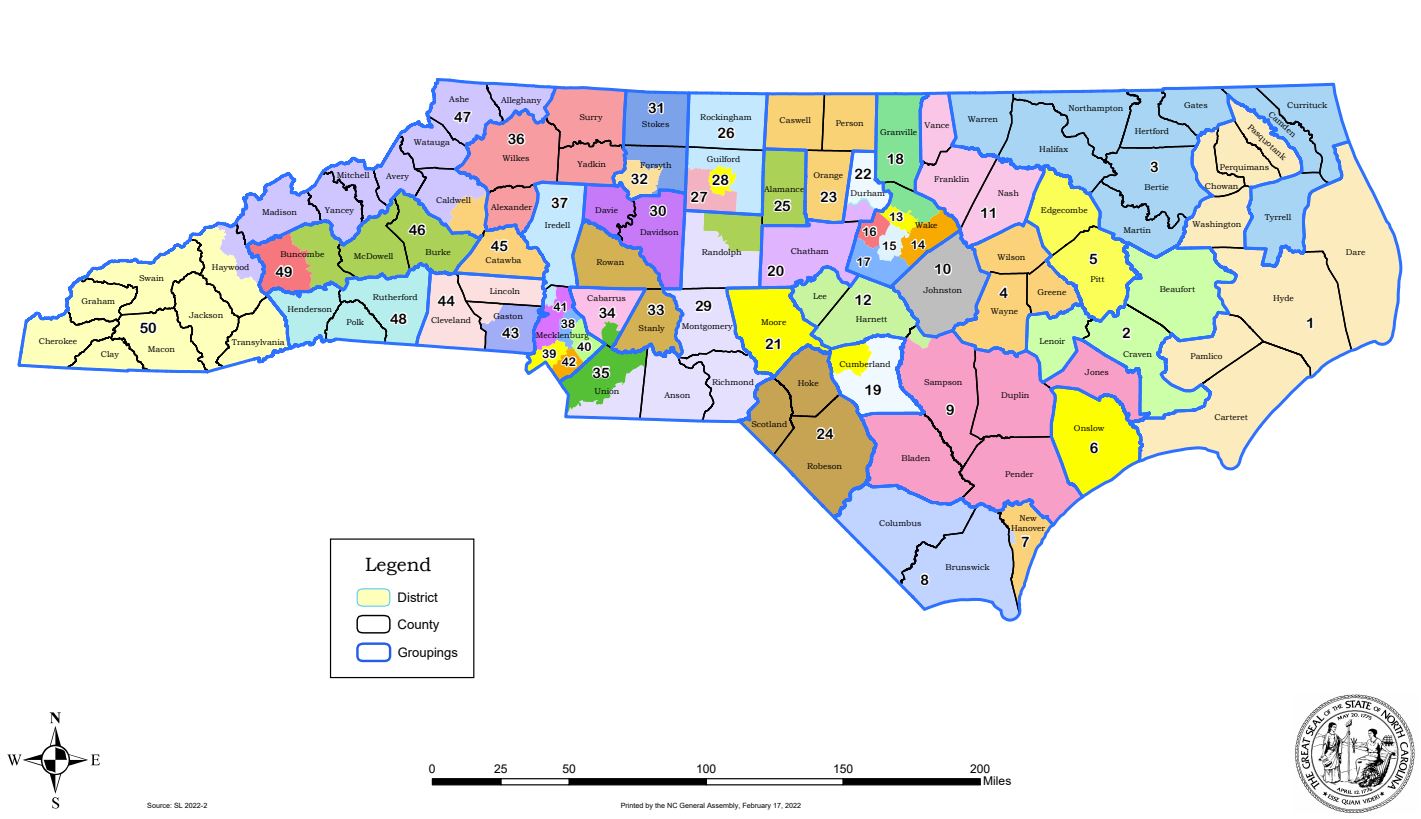North Carolina is already facing lawsuits over its recently passed congressional maps. Civil rights advocates say the maps are unconstitutionally gerrymandered.
Last week Duke University held a panel to discuss the ethics of the new boundaries and the ways the new maps will likely shape the North Carolina political scene.
Legal challenges brought against the new maps, which were approved by Republican legislators last week, called the new boundaries indefensibly gerrymandered. The new districting lines would likely give Republicans 10 or 11 of North Carolina’s 14 congressional seats in the upcoming election.
Duke public policy expert Asher Hildebrand argues the Republican-approved maps are not representative of the North Carolina electorate because the state has become increasingly Democrat over the last decade.
“There’s nothing inevitable about the extreme partisan gerrymander that they’ve produced. Gerrymandering is a choice, and it’s a choice they didn’t have to make,” Hildebrand said.
The procedures for creating the maps changed this year to become more public and more explicitly against its use of partisan data. Hildebrand said, however, changes in process do not necessarily lead to better outcomes.
“Seems pretty clear to me that a decision to select a map that produces such an extreme partisan gerrymander when there are other options available that did not, violates that second part of the criteria which is a ban on partisan considerations,” Hildebrand said. “If that is not a partisan consideration, I don’t know what is.”
The maps passed by the legislature also received criticism from independent commissions. The Princeton Gerrymandering Project, which analyzes maps and seeks to eliminate partisan gerrymandering across the country, gave all three maps an overall “F” rating, because they provide a significant Republican advantage.
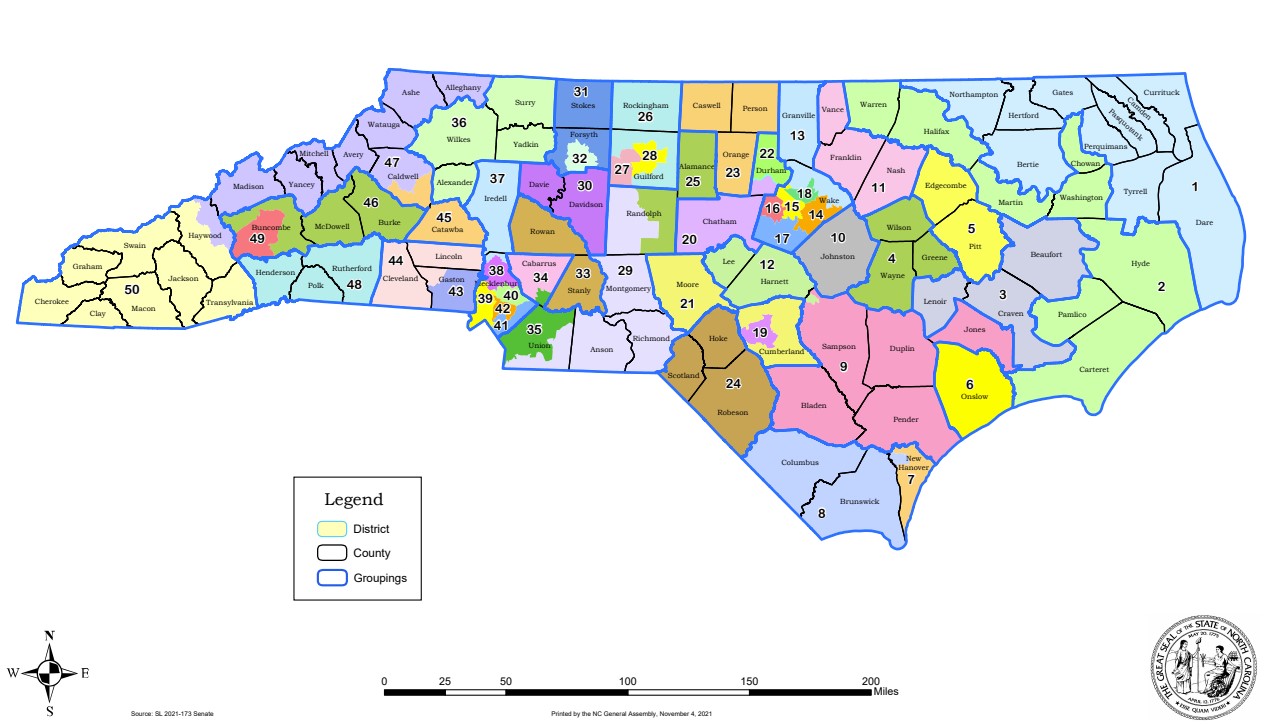
Jonathan Mattingly is a professor of mathematics and statistical science at Duke University who studies gerrymandering. He developed models to study the extent of gerrymandering in the new maps.
“These districts that are in play have many, many less Democrats than we would typically see,” Mattingly said. “The districts that are very safe for Democrats have many more Democrats, so they’ve been packed in.”
The U.S. House map splits Wake, Mecklenburg and Guilford counties into three congressional districts each. The areas include the cities of Raleigh, Charlotte and Greensboro are the three most populous counties in the state and overwhelmingly elect Democrats.
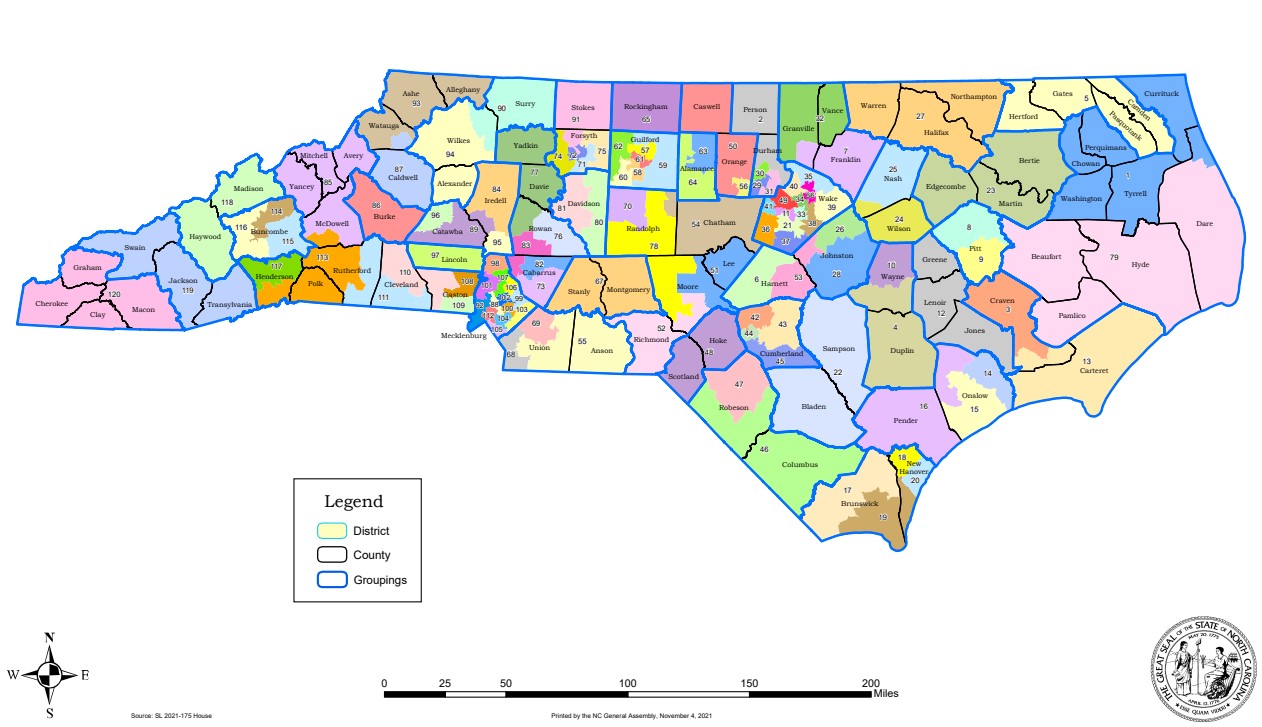
Mattingly said these signs of both packing the minority party into fewer districts and cracking deeply partisan districts are typical of partisan gerrymandering across the country, which leads to the underperformance of one party.
“In some sense, the outcome of this election with the exception of maybe one seat, is pretty much decided before the election happens,” Mattingly said.
Both experts agree the process for approving the maps was flawed. Hildebrand said he believes the new criterion and data were used selectively, which made the process more confusing for the public.
Mattingly said the new maps was intentionally unusual, meaning Republican legislatures in charge of the map making used technology to their benefit to pack and crack districts.
“There’s a natural advantage to a political party that’s more spread out. However, what we saw in the North Carolina House, that’s exactly what we take into account. That’s exactly why we don’t have proportional representation,” Mattingly said. “I don’t claim we should if we like this idea of geographic representation. However, you still see a dramatic under electing of Democrats even when you take that into account.”
Mattingly said while these maps are discouraging to him, he holds out hope future drawing processes will be more intentionally just because of the high level of civic engagement around this issue.
He said one solution to this problem is to enlist the help of an independent redistricting commission to help draw congressional boundaries, something 20 other states already have some form of.
Photo via North Carolina General Assembly
Chapelboro.com does not charge subscription fees. You can support local journalism and our mission to serve the community. Contribute today – every single dollar matters.

